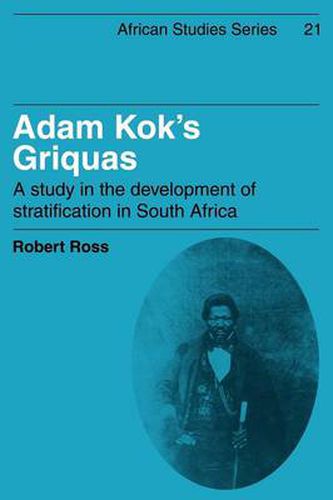Readings Newsletter
Become a Readings Member to make your shopping experience even easier.
Sign in or sign up for free!
You’re not far away from qualifying for FREE standard shipping within Australia
You’ve qualified for FREE standard shipping within Australia
The cart is loading…






This book examines the ways in which racial and economic stratification were brought to coincide in pre-industrial South Africa by describing in detail the history of one group, the Griquas of Philippolis and Kokstad. These people, of very mixed origins, were central, both physically and symbolically, to the processes of South African history in the nineteenth century. They were able to gain control over a very large area of the southern Orange Free State, where they established what was, for a time, a prosperous little state. Very many Griquas became Christian, although this did not mean that they were dominated by the missionaries - rather the reverse. A substantial number were literate. Moreover, they made use of all possible means of developing their own wealth, first as ivory hunters and then as successful horse and sheep ranchers. In short, they fulfilled all the criteria for acceptance into the ruling class of white South Africa. except that they were not white.
$9.00 standard shipping within Australia
FREE standard shipping within Australia for orders over $100.00
Express & International shipping calculated at checkout
This book examines the ways in which racial and economic stratification were brought to coincide in pre-industrial South Africa by describing in detail the history of one group, the Griquas of Philippolis and Kokstad. These people, of very mixed origins, were central, both physically and symbolically, to the processes of South African history in the nineteenth century. They were able to gain control over a very large area of the southern Orange Free State, where they established what was, for a time, a prosperous little state. Very many Griquas became Christian, although this did not mean that they were dominated by the missionaries - rather the reverse. A substantial number were literate. Moreover, they made use of all possible means of developing their own wealth, first as ivory hunters and then as successful horse and sheep ranchers. In short, they fulfilled all the criteria for acceptance into the ruling class of white South Africa. except that they were not white.